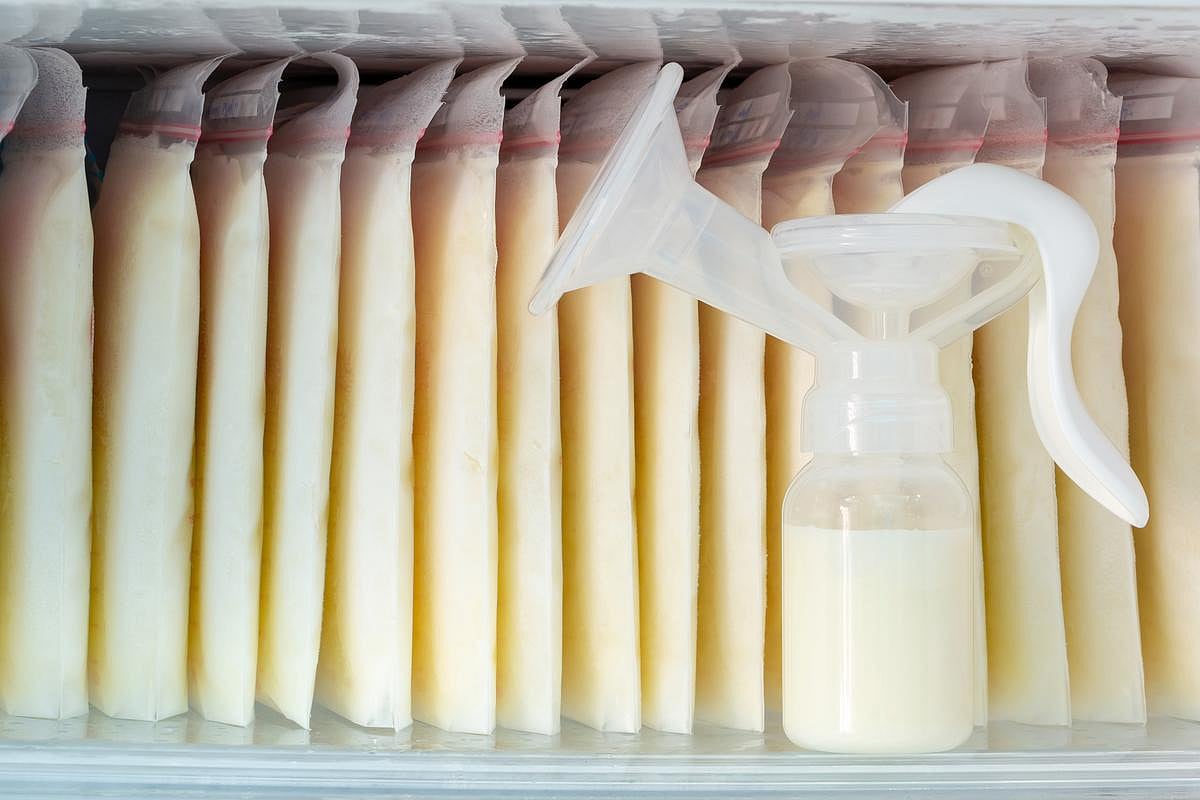The Experts' Guide to Safely Pumping, Storing And Thawing Breast Milk
TUESDAY, Aug. 26, 2025 — Breastfeeding offers many benefits, from emotional bonding to better nutrition and immune support. But for parents who need to pump and store breast milk, handling it safely is key.
“Parents often feel nervous about food safety when handling and storing their breast milk,” said Dr. Patricia Campbell, a pediatrician and lactation consultant at Children’s Hospital Los Angeles.
“Thankfully," she added in a news release, "Scientific organizations like the Centers for Disease Control and Prevention (CDC) help to provide straightforward guidance that anyone can access.”
Here’s what experts recommend for pumping, storing, and thawing breast milk safely:
-
Wash your hands before pumping. If soap and water aren’t available, use hand sanitizer with at least 60% alcohol.
-
Use clean, food-grade containers or breast milk storage bags. Avoid using food bags or bottle liners.
-
Label each container with the date it was pumped and your baby’s name if sending milk to childcare.
-
Don’t reuse storage bags — they’re single-use only.
-
Clean and sanitize bottles after every use.
-
Keep fresh and frozen milk separate — never mix them.
-
Discard leftover milk after feeding instead of reheating it later.
To store breast milk safely, follow these guidelines from Children’s Hospital Los Angeles:
-
Room temperature: Up to 77°F (25°C) for up to 4 hours
-
Cooler with ice packs: Up to 24 hours
-
Refrigerator (fresh or thawed milk): 40°F (4°C) for up to 48 hours
-
Home freezer (attached to a fridge): 0°F (-18°C) for up to 3 months
-
Deep freezer: -4°F (-20°C) for 6 to 12 months
Once thawed, breast milk should be used within 24 hours and never refrozen.
The best way to thaw breast milk is to place it in the refrigerator or swirl the container in a bowl of warm water.
Avoid boiling water or microwaves, which can overheat the milk and damage nutrients.
Sources
- Children's Hospital Los Angeles, news release, Aug. 22, 2025
Disclaimer: Statistical data in medical articles provide general trends and do not pertain to individuals. Individual factors can vary greatly. Always seek personalized medical advice for individual healthcare decisions.
© 2025 HealthDay. All rights reserved.
Read this next
Pregnant Women With Epilepsy Not Consulting With Neurologists, Missing Out On Important Care
WEDNESDAY, Sept. 17, 2025 — Roughly half of pregnant women with epilepsy see a neurologist while they’re expecting, an oversight that could put both mom and baby at...
Circumcision Down In U.S., Partly Due To Parental Mistrust Of Doctors, Study Says
WEDNESDAY, Sept. 17, 2025 — Circumcision rates have declined significantly in the United States, driven in part by parents’ distrust of medical advice, a new study...
U.S. Officials To Review COVID Vaccine Safety in Pregnancy, Kids
TUESDAY, Sept. 16, 2025 — Federal health officials are reviewing safety data on COVID vaccines in pregnant women and children, and may also reconsider recommendations for...
More news resources
- FDA Medwatch Drug Alerts
- Daily MedNews
- News for Health Professionals
- New Drug Approvals
- New Drug Applications
- Drug Shortages
- Clinical Trial Results
- Generic Drug Approvals
Subscribe to our newsletter
Whatever your topic of interest, subscribe to our newsletters to get the best of Drugs.com in your inbox.


